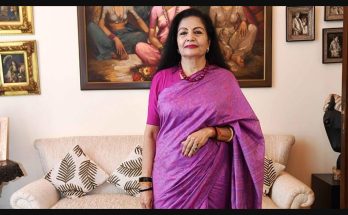 Looking East is no longer enough. It’s time for India to Act East – this was the overarching message emanating from External Affairs Minister Sushma Swaraj’s August 24-25 visit to Vietnam.
Looking East is no longer enough. It’s time for India to Act East – this was the overarching message emanating from External Affairs Minister Sushma Swaraj’s August 24-25 visit to Vietnam.
In her first meeting with 15 Indian Heads of Mission in Southeast and East Asia in Hanoi, Swaraj directed them to ‘Act East,’ and amplified on the BJP-led government’s strategic intent to scale up India’s ties with the region to a new level, a kind of Look East 3.0 version.
Mapping the way ahead, the brainstorming session on August 26 saw the envoys tossing a host of ideas to galvanize India’s Look East policy, which included buttressing India’s growing role and relevance in the security architecture of Southeast Asia and Indo-Pacific region, including the disputed South China Sea and ways to increase India’s integration in the region through trade, tourism and better connectivity.
This was Sushma Swaraj’s second region-specific meeting with Indian heads of missions. She presided over a similar exercise in Gulf countries, following the crisis in Iraq two months ago.
The minister was given a firsthand briefing by the Indian envoys of the challenges and opportunities for India in their respective countries of posting, on the regional security architecture and the role of India, said Syed Akbaruddin, the spokesperson of India’s external affairs ministry.
The main message given by the minister to the Indian envoys was how to turn India’s ‘Look East Policy’ to ‘Acting East’ and ways to meet the challenges that lie ahead, he stressed.
The brainstorming session was significant especially after Vietnamese leaders, during Swaraj’s visit, sought greater Indian involvement in maintaining maritime safety and security and in settlement of territorial disputes in the disputed South and East China Seas.
Vietnam’s Foreign Minister Pham Banh Minh had said at an ASEAN-India conference on August 25 that India and the bloc of ten Southeast Asian countries should focus “more on maintaining maritime safety and security, freedom of navigation and settling territorial disputes through peaceful means”.
C for Connectivity
 Stressing on building strong connectivity within ASEAN, Swaraj stressed that there is a need to look at a more “functional visa regime” in the grouping. Underlining the need for a multi-stakeholder approach, she said the new government in India was a strong believer in a participative approach to bring together the members of the strategic community, the industry, the experts and professionals and the youth in India and ASEAN countries to advance the common agenda of development, progress and prosperity.
Stressing on building strong connectivity within ASEAN, Swaraj stressed that there is a need to look at a more “functional visa regime” in the grouping. Underlining the need for a multi-stakeholder approach, she said the new government in India was a strong believer in a participative approach to bring together the members of the strategic community, the industry, the experts and professionals and the youth in India and ASEAN countries to advance the common agenda of development, progress and prosperity.
In her inaugural address at the 3rd Roundtable of ASEAN India Network of Think Tanks in Hanoi, Sushma Swaraj had made a push to enhance connectivity and integration of economic space to boost trade and investment linkages between ASEAN and India.
She urged policy and decision makers to work on avenue to build the C of connectivity to the five Ts that the Government of India is pursuing – Tradition, Talent, Tourism, Trade and Technology.
“Looking at the synergies in our regional and global approaches to further economic growth, prosperity, peace and stability, it is important that we accelerate the ongoing integration of the economic space between ASEAN countries and India. If we look at our economic space as one, there is tremendous scope to enhance trade and investment, create jobs and improve standards of living across our region.”
Connectivity, the minister stressed, implies more than geographic linkages between India and ASEAN, which are home to over 1.8 billion people. “It involves also institution-to-institution and people-to-people linkages. Even geographic connectivity becomes a stronger concept if we include a multimodal approach that integrates land, sea and air connectivity and if we can bring in the soft infrastructure to advance trade integration and facilitation through joint transit arrangements and allow easier movement of goods and people,” added Swaraj.
Author Profile
- India Writes Network (www.indiawrites.org) is an emerging think tank and a media-publishing company focused on international affairs & the India Story. Centre for Global India Insights is the research arm of India Writes Network. To subscribe to India and the World, write to editor@indiawrites.org. A venture of TGII Media Private Limited, a leading media, publishing and consultancy company, IWN has carved a niche for balanced and exhaustive reporting and analysis of international affairs. Eminent personalities, politicians, diplomats, authors, strategy gurus and news-makers have contributed to India Writes Network, as also “India and the World,” a magazine focused on global affairs.
Latest entries
 DiplomacyApril 23, 2024Resetting West Asia, re-booting the world, but not fast enough: T.S. Tirumurti
DiplomacyApril 23, 2024Resetting West Asia, re-booting the world, but not fast enough: T.S. Tirumurti India and the WorldApril 22, 2024India’s G20 Legacy: Mainstreaming Africa, Global South in global agenda
India and the WorldApril 22, 2024India’s G20 Legacy: Mainstreaming Africa, Global South in global agenda DiplomacyApril 10, 2024Diplomat-author Lakshmi Puri pitches for women power at LSR
DiplomacyApril 10, 2024Diplomat-author Lakshmi Puri pitches for women power at LSR India and the WorldApril 6, 2024UN envoy pitches to take India’s solutions to the world stage
India and the WorldApril 6, 2024UN envoy pitches to take India’s solutions to the world stage







